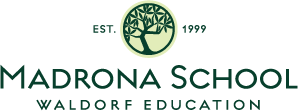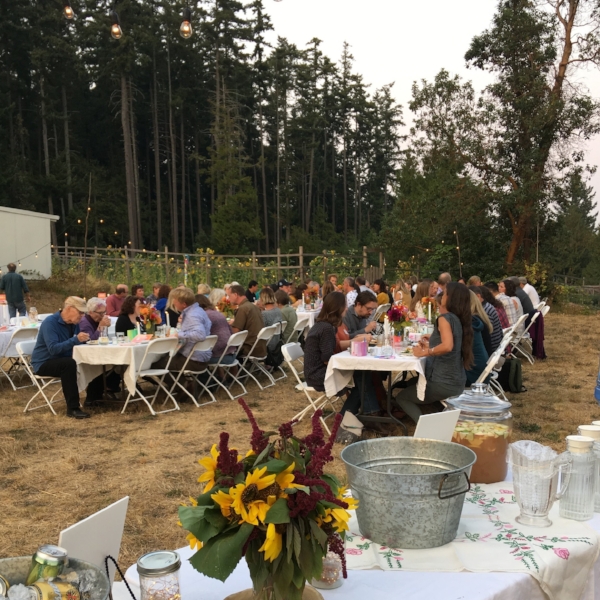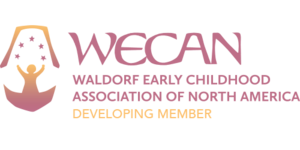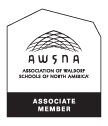Madrona School Alphabet (I)
In our alphabet-based exploration on what makes a Madrona School education unique, 'I' is for imagination -- Our students develop and nurture flourishing imaginations, making them wonderful readers, good problem solvers, flexible thinkers and in possession of a rich, creative inner life to take into adulthood.
Preschool play
A Waldorf school curriculum highlights the importance of imagination with lots of time and room for play in early childhood, both indoors and out. Isn't it magical to see the development of a young child's play, and the richness that happens when the planning and storytelling almost become the play? A well-developed imagination lays the groundwork for academic work, as well as enhances self-discipline.
Drawing of a fair from a 6th grade student's medieval history work.
Throughout grade school, the curriculum continues to value imagination as a part of a healthy childhood. In first grade, for example, letters and numbers are brought through story, further developing that full inner pictorial life for each student. And storytelling enhances main lessons in every grade, adding depth to the academic work. A well developed imagination blossoms again and again throughout our children's lives.
"Imagination is more important than knowledge. For knowledge is limited to all we now know and understand, while imagination embraces the entire world, and all there ever will be to know and understand." –Albert Einstein
Harvest Dinner at Lowery Farm
Our recent Harvest Dinner was lovely -- thank you to everyone who was able to come and celebrate the new school year with us! The dinner was a kickoff to our year-long Community Fund efforts to raise $120,000 in non-tuition income in support of our school budget. And, we've raised $56,000 to date! We are grateful for every gift we've received and thrilled that our re-organized fundraising program is off to a strong start. If you would still like to donate, please do so through our website here.
Enjoy these photographs from the event -- a selection from talented parents Paige Clark and Julie Rings. Thanks for sharing, you two!
Bread Day in our Early Childhood Classrooms
It’s baking day in the preschool. Arriving at school, the children spy the familiar cloth-covered bowl on the table. Silky, elastic dough fills the bowl and a sweet, yeasty scent hangs in the air. As each child settles in, they see their teacher reach in for pieces of dough from the bowl. They delight in taking a place at the table and receiving their piece of dough, the only invitation they need to begin kneading and shaping their bun.
Meanwhile, the teacher sings:
Five hot buns in the bakery shop,
Big and round with honey on the top.
[Maggie] came along with a penny one day,
She bought a hot bun and she ate it right away!
The children love to hear their name in the song, and some sing out. They also join in enthusiastically when the teacher begins to chant “Pat a cake, pat a cake,...”, bringing a steady pounding rhythm to kneading dough.
When each child has kneaded and shaped their dough, and before they run off to play, they place the bun carefully on a baking sheet to finish rising. When all the children finish, the teacher slides the sheet into the warmed oven, and soon a delicious smell fills the room. Anticipation is a wonderful part of this bread day ritual, and the smell of baking bread signals the approach of the clean up song and snack time.
Finally, snack time arrives, the children waiting more patiently some days than others! On a chilly winter’s morning, the class gathers at their table indoors and lights a candle. On a a warm spring day they may walk to the park and sit together around a picnic table. In any case, the class gathers to eat their buns still warm from the oven -- made even sweeter with soft butter and jam or honey -- enjoying conversation and practicing table manners. As snack time ends, everyone washes dishes and play resumes.
Some children routinely tuck a bit of their bun in a napkin to take home, knowing a brother or sister, or a parent, would love a little taste of bread day.
Our teachers and students engage in the preparation of a warm, organic snack each day in all of the Madrona School early childhood classrooms -- parent-child, preschool and the kindergartens. This snack fills a hungry tummy after a period of play and interaction, but it also engages many senses, such as touch, smell, sight and taste, and practice integrating multiple sensations within one experience.
Bread day illustrates our aim to engage each child's whole self at school. We surround our students with a calm, home-like environment, time outdoors rain or shine, security through daily, weekly and seasonal rhythms, opportunity for developmentally-appropriate exploration, suggestions for dress and nutrition to nourish both body and soul with warmth; opportunities for purposeful work; and an appreciation for the beauty in the every day.
Want to add 'Bread Day' to your rhythms at home? Here is the recipe our classes begin with -- feel free to make it your own!





















